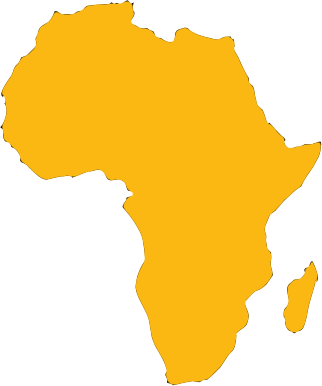The Ramaphosa Doctrine That Falls Short.
By Musa Mdunge
On 15 October 2020, Preside Cyril Ramaphosa announced the South African government’s
long-awaited economic rescue plan in Parliament. The plan which is expected to support
much-needed economic reforms and provide economic stimulus in the covid-19 era has
been described by some as the catalyst that will shape Ramaphosa’s legacy and define the
“Ramaphosa doctrine”.
The president spent over an hour laying down in many ways a plan that in some form or
shape we have heard before but what was welcomed in the more focused approach by
government to focus on key eras rather than try to juggle a million priorities with no way of
assessing implementation and impact.
Nonetheless, while priorities were streamlined to focus on infrastructure development,
energy security, the creation of 800 000 job opportunities, and the reduction of costs
associated with establishing news investments in mining and water industries, the speech
did little to take the country through how the government planned to do this and the
monitoring capabilities that will be built into the state to ensure zero corruption.
Moreover, the fact that about 800 000 jobs will be created via the state creates confusion
given the bloated wage bill and in some regards poor state capacity.
The question that arises in my mind is how is the state to support new job opportunities in a state that has little fiscal room and rising debt level that make more difficult the spending decisions the state has to make? Now I know some people will argue that Musa perhaps the state must let go of a neo-liberal focus on debt and fiscal prudence and rather focus on economic stimulus even if it must borrow its way towards the 3% annual economic growth South Africa envisions for the next 10 years. However, I would argue that such an approach is short-sighted, leaving future generations with the debt sins of their forebears while having little in the way of savings to support sustainable economic growth and development for the future. I would argue that can do both things, reduce public debt, and stimulate economic growth.
On the debt front, the state must look to cap the fiscal deficit, by reprioritising expenditure
away from 0% return expenditure, while focusing on capital expenditure. It is a false claim
to think that reprioritising expenditure while stabilising the debt levels will have no impact.
One must consider the multiplier effect of how the government spends tax revenue and
there are no doubt capital expenditure items such as infrastructure development, which for
now according to the government has seen some form of R340bn being prioritised will go a
long way in unlocking economic opportunities in urban and rural areas. However, what was missing in the speech was how the government would priories the access to its capital
expenditures plans to small businesses led by black, female, and the differently-abled
sections of our economy. Moreover, unless anti-corruption mechanisms and institutions are strengthened, we will continue to bleed state rands to wasteful expenditure which has seen over R1tn lost to the fiscus since 2010.
Another major issue energy security, which since 2008, has seen us see rolling blackouts
that have shaved off at least 10% of GDP in the past 10 years. Unless we can secure our
energy supply long-term sustainable investment that leads to economic growth will remain
hampered. However, I must welcome the push government is making to wrap up the
independent power producer agreements that will hopefully unlock the 2000 MWs of
power on the national grid. But more must be down from a regulatory point to allow
companies that can fund their energy production to do so. This is already being done in
other African countries where the national grid is unstable. This I believe would unlock more investments in the mining, manufacturing, and agricultural and agro-processing sectors.
There already exist limited examples of this in the coal sector in Limpopo where some
Chinese firms are meeting their own electricity needs and have mitigated the operational
risks associated with Eskom. Eskom is not the only headache that Ramaphosa must contend with. Other SOEs such as SAA, Denel, and Prasa remain a thorn that unless he provides a concrete plan on how he will turn them around, will undermine the economic reforms this country needs. I do not believe that a simple sale of dissolution of these companies is the solution. They still have a role to play in building a developmental state by helping create an environment for further economic growth but one it is needed is strong and capable leadership and clear and defined roles between the leadership of these companies and that of the government.
The years of state capture have shown what damage can be done when the role between the state and SOEs is not clearly defined and looting is allowed to happen with little recourse. Moreover, any economic reform strategy that ignores SOEs is bound to fail and yield little change.
Lastly, what was missing from the plan laid by the ANC government is a plan on how to
effectively improve its two largest budget items, Education and Health. These two line items
speak to the quality of the human capital South Africa produces and how competitive it is in
a world where countries are scrambling for capital investment flows to help aid job needs. I
need not draw emphasis on to fact that South Africa has the highest unemployment rate in
the world (23% strict def.-42% expanded def.). Education and Health are key economic
investments and unless we start viewing them as such South Africa will fast lose its status as the gateway to the continent if that has not already happened.
All in all, while the speech fell short on concrete details, it has glimmers of hope. If we can
get SOEs and infrastructure plans right, alone, the 3% growth we envision may just be
possible. However, a debate for another day is whether even the 3%annual growth target
for the next 10 years is good enough, I mean we have been here before with even higher
economic growth numbers under the Thabo Mbeki administration but we saw how the
number of people who set outside the labour force overwhelmed the labour market and an
economy growing at 5% was unable to meet the growing demand for jobs in the labour
market. Those years were dubbed the jobless growth years even though in reality millions of jobs were created and the black middle class grew. The Mbeki years must provide us
warning that if we are to fix the economy, we will essentially need to build new industries
and support enterprise more than ever before. The question is, does the Ramaphosa
doctrine give us a path to the answers we seek?
Article Tags
 Africa
Africa Education
Education Joburg
Joburg South Africa
South Africa Greatest Africans
Greatest Africans Africa
Africa Education
Education Joburg
Joburg South Africa
South Africa Greatest Africans
Greatest Africans